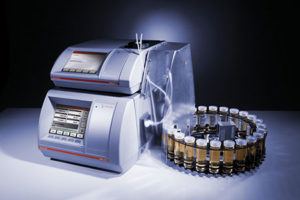Delayed Blood-Alcohol Estimates Draw Criticism in Cases.

The way prosecutors saw it, the Defendant was driving while intoxicated when he raced own a Long Island freeway at 100mph this summer and slammed into a car carrying a family home from church. The fiery wreck killed a father and his two children. The defendant’s blood-alcohol reading, taken about four hours later, was 0.06 which is below the legal limit of 0.08. The Defendant was still charged with Driving under the influence and vehicular homicide because a forensic technique estimated that his blood-alcohol level at the time of the crash was actually 0.12.
This technique is known as retrograde extrapolation and has been used to win convictions in DUI cases nationwide for decades, but has increasingly come under scrutiny by drunken-driving experts as an unreliable measure of a person’s intoxication. Some defense attorneys have even labeled it junk science. A former prosecutor who is representing the Defendant stated that, “Retrograde extrapolation is about as scientifically reliable as astrology. It relies on the assumption that a person’s blood-alcohol content peaked prior to the arrest without any basis to prove that.”
While there are no national statistics to document the use of retrograde extrapolation, prosecutors in many states have offered evidence of estimated intoxication levels at trial, whereas, courts in other states have severely restricted its use requiring prosecutors to use only blood-alcohol readings taken at the time of arrest. Prosecutors who have used retrograde extrapolation swear by it as a proven technique that doesn’t reward DUI suspects for fleeing the scene and avoiding immediate blood-alcohol testing. Experts say the intoxicating effects of alcohol are not experienced until it is absorbed into the blood stream. After a person stops drinking, the blood-alcohol level peaks when the most alcohol has been absorbed and the least amount of alcohol has been eliminated. Defense attorneys argue that alcohol absorption and elimination rates vary widely depending on a person’s gender, drinking habits, the type of beverage, what a person ate and how much, and whether a person had experienced trauma, which sometimes slows the rate.
Don’t trust the junk science. If the police “expert” says a person was drunk, you need to hire an experienced DUI attorney who knows how to attack drunk driving, and DWI, charges. The experienced DUI attorneys at Durflinger Oliver & Associates PS& Associates will meet with you for free and explain your options. Call today, and ask about our convenient payment plans and military discount – 253-666-8927.
